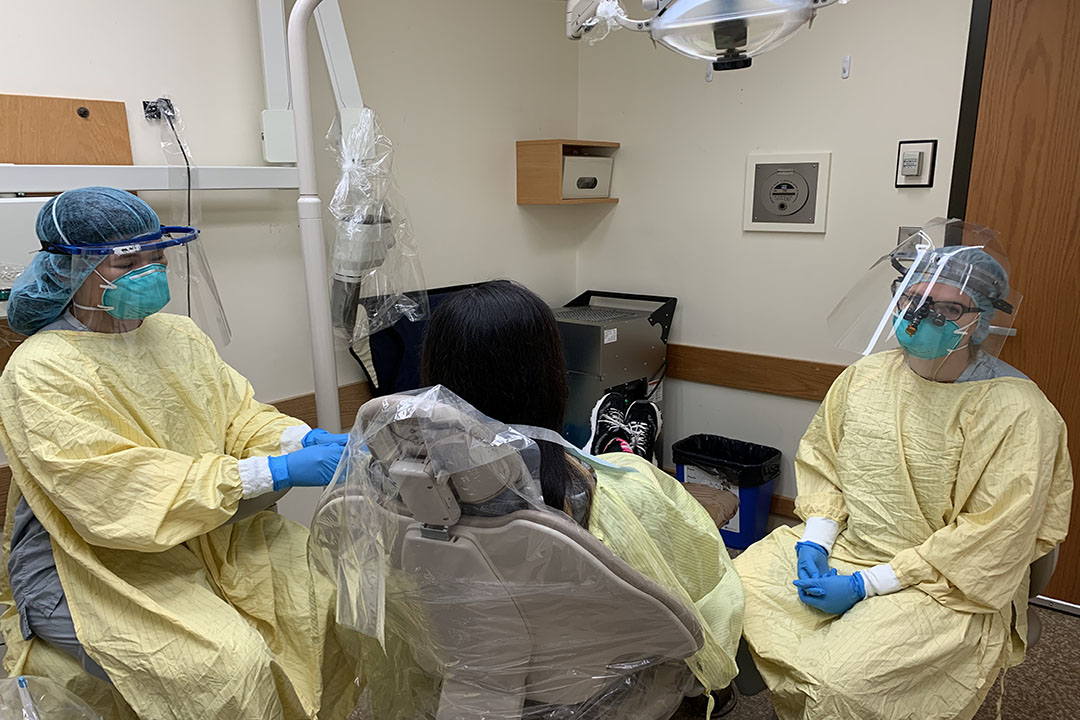
USask helps lead COVID-19 saliva dental research study
Dentistry students and staff remain among the few groups on-site nearly daily at universities and colleges across Canada, including those at the University of Saskatchewan (USask).
Their continued presence on campus, and the nature of the dental work itself, increase their risk of exposure to COVID-19. The Government of Canada is investing approximately $1.4 million through its COVID-19 Immunity Task Force, to support a pan-Canadian study investigating COVID-19 infection rates, transmission risks, and immune system responses of those working in dental clinics, laboratories, and offices in universities.
Dr. Walter Siqueira (DDS, PhD), professor and associate dean academic in the College of Dentistry is a leader in this study through the USask Salivary Proteomics Research Laboratory, one of only a few labs in the world focused on applied salivary research. The study, which is co-led by Drs. Paul Allison (DDS, PhD) and Sreenath Madathil (PhD) of McGill University’s Faculty of Dentistry and Dr. Michael Glogauer (DDS, PhD) of the Faculty of Dentistry at University of Toronto, includes investigators from all 10 Canadian dental schools.
“This is an exciting project that has brought all of the Canadian dental schools together to address an area of COVID-19 research that hasn’t yet been explored. My lab has spent significant time standardizing a saliva-based method of testing for COVID-19 which will be an integral part of this project,” said Siqueira. “I am honoured to put USask as a major player in this important project. My international recognition in salivary research demonstrates the quality of research done in my laboratory and in the College of Dentistry, USask.”
The study will recruit 800 dental and dental hygiene students, dental residents, faculty and support staff from across the country—80 participants from each school. Every month for a year, participants will be asked to provide a saliva sample and complete a COVID-19 related questionnaire. The questionnaire will address the participants’ sociodemographic, socioeconomic, and health status, and ask more role-specific questions about the tasks they perform, the treatments they dispense, and the protective equipment and protocols they use.
“The results from this research study will further inform the effective infection control protocols in dental schools, and possibly more broadly to Canadian university and college campuses across the country,” said Canada’s Chief Public Health Officer, Dr. Theresa Tam (MD).

